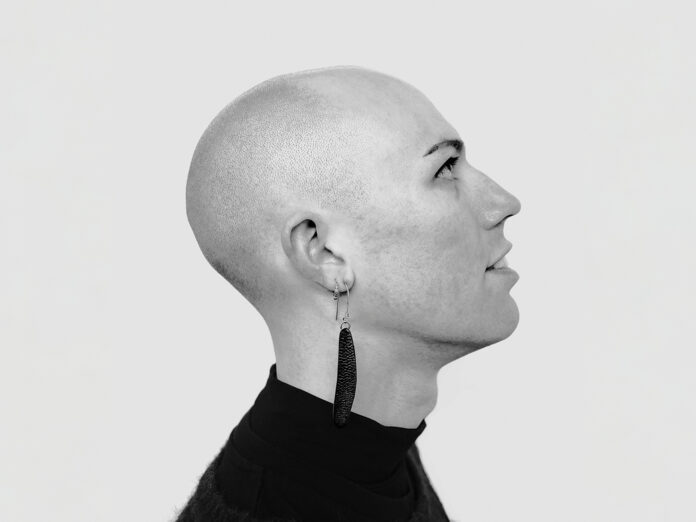Jacken Elswyth was always likely to be an alternative folk musician. Until recently, her parents were members of the band Sproatly Smith, at the centre of Herefordshire’s ‘Weirdshire’ folk scene; they’re also the two guests joining Elswyth on her new album, At Fargrounds. “It’s not exactly a standard narrative,” she smiles. “My parents aren’t old folkies who sang in folk clubs while I was young. We’re both approaching folk from a slightly oblique angle and doing something a bit strange with it. But it does mean that there is a connection there to the image of traditional song being something inter-generational.”
Jacken Elswyth was always likely to be an alternative folk musician. Until recently, her parents were members of the band Sproatly Smith, at the centre of Herefordshire’s ‘Weirdshire’ folk scene; they’re also the two guests joining Elswyth on her new album, At Fargrounds. “It’s not exactly a standard narrative,” she smiles. “My parents aren’t old folkies who sang in folk clubs while I was young. We’re both approaching folk from a slightly oblique angle and doing something a bit strange with it. But it does mean that there is a connection there to the image of traditional song being something inter-generational.”
Elswyth started out making drone-based guitar improvisations as a teenager but stopped performing for several years due to full-time commitment to a doctorate in anthropology at Sussex University. “I was playing banjo through that time,” she says, “but just in my room, on my own.” When she returned to music with focused intent, the folk tradition was core to her interests, but with an experimental edge she’d gleaned from listening to ‘free folk’ artists like Six Organs Of Admittance and PG Six.
Much of what Elswyth does collapses dichotomies in a similar way. Her music often accrues around a drone, or something gently avant-garde, that still somehow grounds the melody. The DIY ethos is fundamental – on 2021’s solo debut Banjo And The Sound Of Its Own Making, you could literally hear Elswyth building her own instrument. When she plays, it’s potent and powerful, revealing a depth of engagement with folk music’s strange qualities and its capacity to reveal something uncanny to the modern ear.
For Elswyth, that weirdness is central to the history of the folk tradition. “It’s a thing we talk about in the Shovel Dance Collective,” she nods, mentioning the bustling musical collective she’s been part of for some years now. “There’s the most weird and the most traditional, and those things are not in opposition, but are actually feeding each other.” Yet while her music embraces the strange, it’s fundamentally rooted in the earth. “That’s also really important to me,” she continues, “the refusal of it being otherworldly. This isn’t music that comes from the faeries.”
If last year’s Six Static Scenes pulled apart traditional melodies to give her space to explore abstraction, At Fargrounds allows her facility with folk traditions to shine through more clearly. “They’re all things I’ve been playing for a long time,” she says. “I wanted to give voice to the way I’ve been playing those trad tunes, in a slightly more trad way, but coming up in the way that I do.”
Interested in expanding the album’s musical palette beyond banjo and shruti box, she invited her parents Kate Gathercole (fiddle and harmonium) and Mark Waters (double bass) to join in. The result is a beautiful set of melodies and improvisations where you can hear the sympathy that resonates through their recordings together, at the family home. “It was really lovely,” Elswyth says, “and really easy.”
The album title further grounds the music in the immediate surrounds of the family experience. “Fargrounds is the name of a field further up the hill from where my parents live,” she explains. “It’s the point at which you can see across the Wye Valley.” It’s a lovely analogy for the openness and wide-eyed spirit that makes At Fargrounds such a gorgeous listen.
At Fargrounds is out now on Wrong Speed



